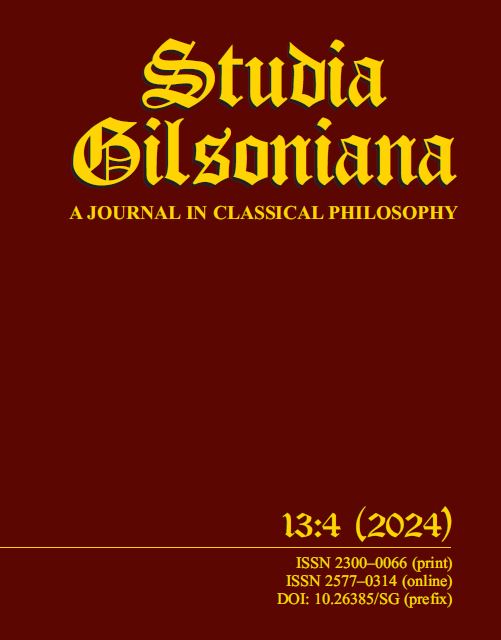The Modern Semantic Principles Behind Gilson’s Existential Interpretation of Aquinas (part 2)
The Modern Semantic Principles Behind Gilson’s Existential Interpretation of Aquinas (part 2)
Author(s): Elliot PolskySubject(s): Philosophy, History of Philosophy, Special Branches of Philosophy
Published by: International Étienne Gilson Society
Keywords: Étienne Gilson; Jacques Maritain; existential judgment; Thomism; Aristotle’s categories; semantics; Brentano; Pfänder
Summary/Abstract: Part one of this two-part paper looked at the modern semantic developments underlying Gilson’s innovative and highly influential semantic theory in Being and Some Philosophers (BSP)—the existential neutrality of the copula, the distinction between predication and some positing or “thetic” function of judgment, and the distinction between predication and assertion. The present part of this paper offers a rereading of Gilson’s work in light of this modern backdrop. It argues that Gilson’s BSP, rather than being a purely historical exegesis of the writings of a thirteenth-century friar, is a work of original philosophizing inspired by Aquinas, but principally engaged with modern debates. In particular, it advances a Brentano-inspired reading of Aquinas in place of Maritain’s Pfänder-inspired reading of him. Rereading Gilson in his historical setting clarifies the meaning and implication of many phrases and theses that have become commonplaces in philosophical discourse, in part because of Gilson’s work.
Journal: Studia Gilsoniana
- Issue Year: 13/2024
- Issue No: 4
- Page Range: 721-758
- Page Count: 38
- Language: English

